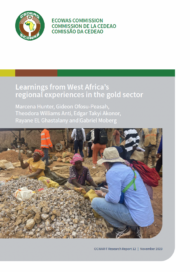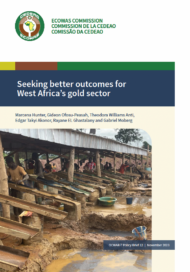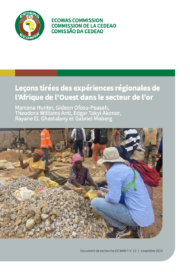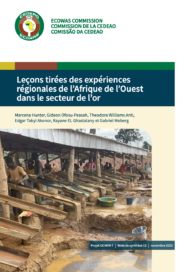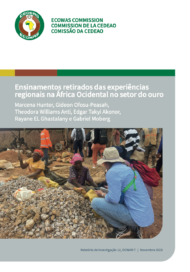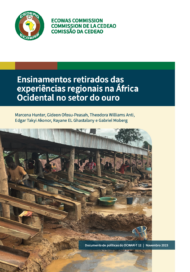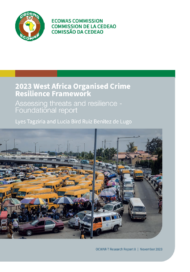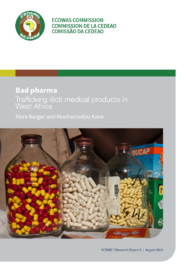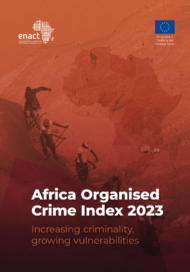Posted on 14 Dec 2023
In the past 15 years, the West African gold sector has witnessed substantial growth, becoming a pivotal pillar of the region’s socio-economics. Though industrial mining accounts for the majority of official gold exports, artisanal and small-scale gold mining (ASGM) has exponentially expanded over two decades, offering a significant source of livelihood for many.
However, ASGM operates within a labyrinth of challenges, primarily its pervasive informality. This unregulated environment leaves it susceptible to criminal exploitation, hindering efforts to unlock its developmental potential.
Historically, strategies to tackle informal or illegal ASGM across West Africa have favoured punitive measures, leading to intensified crackdowns on such activities. These tactics have inadvertently further aggravated the already fragile security panorama across the Sahel, especially considering the role of ASGM in financially supporting a vast network of non-state armed groups in the region.
Yet, a shift in perspective is discernible. Emphasis is increasing on alternative strategies that support formalisation of the ASGM sector as a more viable approach to help states harness its full potential. Formalisation is perceived as an integration process of ASGM into the formal economy, society, and regulatory system. Recognizing it as a critical step towards mitigating the negative ASGM impacts, such as criminal exploitation, formalisation fosters organisation, education, access to support, and trade regulation for gold and mercury. Moreover, evidence shows that crackdowns tend to amplify fragility and security threats, endorsing responses that promote formalisation as integral to broader peace-promoting strategies throughout the region.
This study, aimed at resolving ASGM-related challenges and supporting sector formalisation in the West African context, provides policymakers and stakeholders with clear and actionable recommendations. It is anticipated that this investigation will forge a path towards establishing sustainable, responsible, and formalised mining practices in the region. The study continues on to outline a well-structured problem-solving process for identifying ASGM sector challenges and potential response options in detail. Pioneering a collective and resilient approach, it demonstrates a commitment to combating organised crime and fostering global security.
Organized Crime: West African Response to Trafficking (OCWAR–T)
OCWAR–T is a project supporting the ECOWAS Commission and its member states in reducing transnational organised crime. For this purpose, OCWAR-T addresses the strengthening of institutional structures, capacities and knowledge. Specifically, it supports efforts in criminal investigation and prosecution, improving small arms control and reducing human trafficking. The project is coordinated by the Deutsche Gesellschaft für Internationale Zusammenarbeit (GIZ) and co-funded by the German Federal Foreign Office and European Union. The project component is implemented by ISS and GI-TOC in close coordination with ECOWAS, a central stakeholder across the entire OCWAR-T structure.
